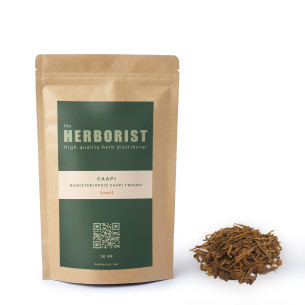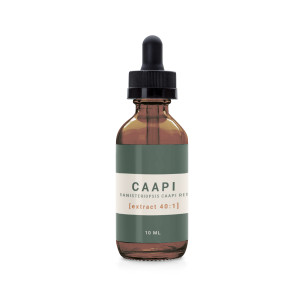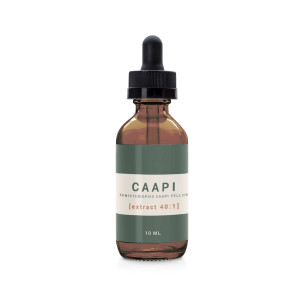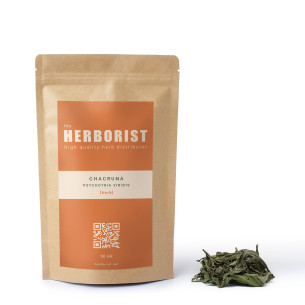Mimosa - Mimosa Hostilis root bark Chopped [ MHRB ]
Top quality inner root bark .
Direct from the farm in Brazil.
Common Name: Mimosa, Jurema, Jurema preta, Vinho da Jurema, M. tenuiflora, Jurema Branca, M. verrucosa.
Country of Origin: Brazil.
Botanical classification.
Common Name: Mimosa Hostilis, Jurema, Jurema preta, Vinho da Jurema, M. tenuiflora, Jurema Branca, M. verrucosa, Vermelha/Embira, M. ophthalmocentra.
Family: Fabaceae.
Genus: Mimosa.
Species: M. tenuiflora
Mimosa hostilis is the former scientific name for Mimosa tenuiflora, and the two names are synonymous. The older name is still widely know due to its presence in the literature and as distributers of botanical products still use the older term. M. tenuiflora is an entheogen known as Jurema, Jurema Preta, Black Jurema, and Vinho de Jurema. Dried Mexican Mimosa Hostilis root bark has been recently shown to have a DMT content of about 1%. The stem bark has about 0.03% DMT.
To date no β-carbolines such as harmala alkaloids have been detected in Mimosa tenuiflora decoctions, however the isolation of a new compound called "Yuremamine" from Mimosa tenuiflora as reported in 2005 represents a new class of phyto-indoles .
This may explain the reported oral activity of DMT in Jurema without the addition of an MAOI. Imported MHRB typically requires the addition of an MAOI in the preparation of ayahuasca.
Alkaloid content
Root Bark contains DMT - 0.31% to 0.57% (Schultes 1977)
Inner root bark contains up to 2% active alkaloids (Extractions from DMT-Nexus and others)
3% of the total alkaloids (or 0.04% of rootbark) is NMT and 2-Methyl-1,2,3,4-Tetrahydro-Beta-Carboline (Analysis of jungle spice, Analysis of red/yellow/white spices
Cultivation
Growing: Mimosas aren´t cold proof. For outdoor growing they deserve a sunny place with leachy middle nutrient soil. Throughout the vegetation are copiously watered, in winter the watering is tied down on to the minimum. They are breeding with the seeds, but can be breeded with the cutting also.
No reviews
You might also like

![Mimosa - Mimosa Hostilis root bark Chopped [ MHRB ] Herborist - 1 Mimosa - Mimosa Hostilis root bark Chopped [ MHRB ] Herborist - 1](https://mycotrop.com/2635-medium_default/mimosa-mimosa-hostilis-root-bark-chopped-mhrb.jpg)
![Mimosa - Mimosa Hostilis root bark Chopped [ MHRB ] Herborist - 2 Mimosa - Mimosa Hostilis root bark Chopped [ MHRB ] Herborist - 2](https://mycotrop.com/2678-medium_default/mimosa-mimosa-hostilis-root-bark-chopped-mhrb.jpg)
![Mimosa - Mimosa Hostilis root bark Chopped [ MHRB ] Herborist - 3 Mimosa - Mimosa Hostilis root bark Chopped [ MHRB ] Herborist - 3](https://mycotrop.com/2134-medium_default/mimosa-mimosa-hostilis-root-bark-chopped-mhrb.jpg)
![Mimosa - Mimosa Hostilis root bark Chopped [ MHRB ] Herborist - 4 Mimosa - Mimosa Hostilis root bark Chopped [ MHRB ] Herborist - 4](https://mycotrop.com/2135-medium_default/mimosa-mimosa-hostilis-root-bark-chopped-mhrb.jpg)
![Mimosa - Mimosa Hostilis root bark Chopped [ MHRB ] Herborist - 1](https://mycotrop.com/2635-large_default/mimosa-mimosa-hostilis-root-bark-chopped-mhrb.jpg)
![Mimosa - Mimosa Hostilis root bark Chopped [ MHRB ] Herborist - 2](https://mycotrop.com/2678-large_default/mimosa-mimosa-hostilis-root-bark-chopped-mhrb.jpg)
![Mimosa - Mimosa Hostilis root bark Chopped [ MHRB ] Herborist - 3](https://mycotrop.com/2134-large_default/mimosa-mimosa-hostilis-root-bark-chopped-mhrb.jpg)
![Mimosa - Mimosa Hostilis root bark Chopped [ MHRB ] Herborist - 4](https://mycotrop.com/2135-large_default/mimosa-mimosa-hostilis-root-bark-chopped-mhrb.jpg)





![Mimosa - Mimosa Hostilis root bark finely shredded [ MHRB ] Herborist - 2](https://mycotrop.com/3435-home_default/mimosa-mimosa-hostilis-root-bark-finely.jpg)